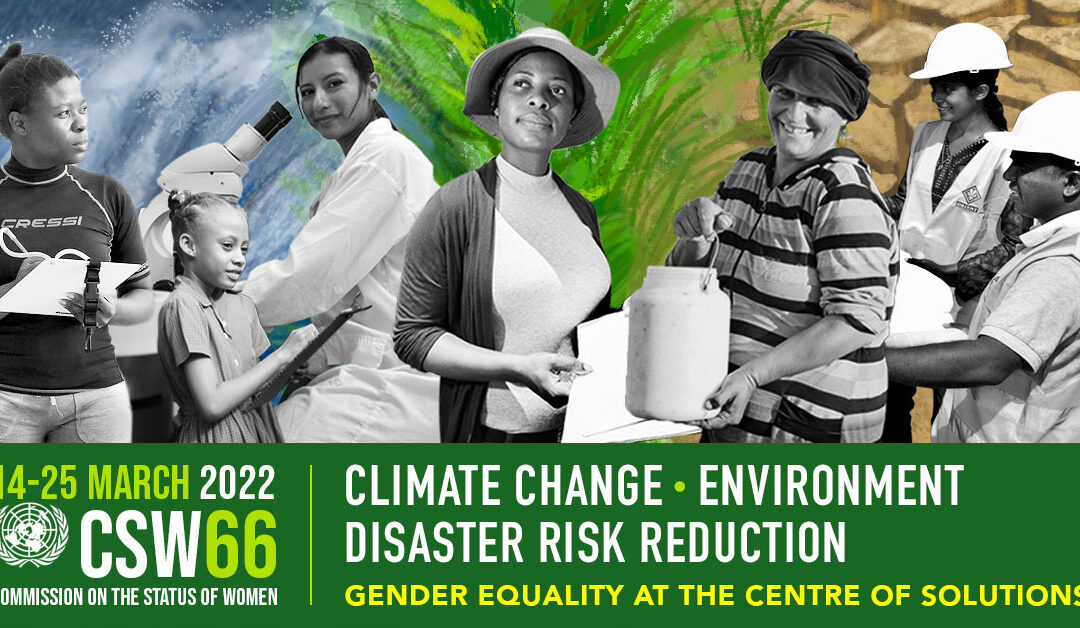April 12, 2022
Highlights:
- No matter the stated theme, abortion and gender ideology get top billing at the United Nations.
- To gain access to $100 billion in UN annual funding, an advocacy group or effort must establish that their cause has a direct connection to climate change.
- The abortion and LGBT activist achieve success by ensuring their cause, their pet projects, and their solutions are highlighted by repeated placement of specific words within UN negotiated documents.
__________________________________________________
When the UN Commission on the Status of Women (CSW) chose the theme for this year’s March confab, one could reasonably have concluded it would be a focused conversation on environmental issues, specifically climate change and its impact on women. But you would be wrong. The primary issues that were hotly debated for over two weeks (including all night, and late into the evening on the final day) were abortion on demand and gender ideology.
The actual CSW 2022 theme reads:
“Achieving gender equality and the empowerment of all women and girls in the context of climate change, environmental and disaster risk reduction policies and programmes.”
No matter the stated theme, however, abortion and gender ideology get top billing at the UN.
Why would this be the case
First off, it’s ideology. Anti-family forces operate from a place of dedication to a cause – promoting abortion on demand, worldwide, and a commitment to what is often referred to as “sexual liberty”- which is includes pushing forward LGBT normalization, allyship, and activism. All of this is best understood by thinking of these ideologies in terms of a religion; the individuals and organizations who push these issues are “true believers.”
Secondly, it’s about money. The UN, through its various agencies, have allotted $100 billion in annual funds to counter the effects of climate change. To gain access to this funding, an advocacy group or effort must establish that their cause has a direct connection to climate change.
How do you yoke your goals to the well-funded climate change agenda?
The abortion and LGBT activist achieve success by ensuring their cause, their pet projects, and their solutions are highlighted by repeated placement of specific words within UN negotiated documents. The various UN commission outcome documents (this CSW’s about women’s empowerment in the context of “climate change, environmental and disaster reduction policies,”) signal how monies will be spent within the UN system.
The anti-family forces use ambiguous terms like “sexual and reproductive health and rights” (SRHR) language – code for abortion on demand. They attempt to insert “Comprehensive Sexuality Education” (CSE) in the hope UN delegates won’t understand that is the phrasing for school programs that promote promiscuity, high-risk sexual behaviors, and LGBT and abortion rights to children. The opposition inserts phrases like “multiple and intersecting forms” of discrimination and “women in all their diversity” as the default phrasing when they aren’t successful at retaining the phrasing they prefer: “sexual orientation and gender identity” (SOGI). We at UFI assist like-minded UN delegates during negotiations by providing them a tool to easily identify problematic language (and positive language, too) with the use of a “grid” of the document being negotiated. You can see an example of this helpful tool, here.
What was the outcome of this year’s CSW and what does the landscape look like going forward.
This year’s Commission on the Status of Women ended with an adopted agreement that fell in line with outcomes of past years. The anti-family forces achieved marginal gains by retaining in the outcome document the diluted term “sexual and reproductive health.” The terms “multiple and intersecting forms” and “women in diverse situations and conditions” were retained, but “sexual orientation and gender identity” was removed.
Pro-family concern has been running high this year as last fall’s UN General Assembly saw a resolution adopted, for the first time, with the phrase “sexual orientation and gender identity” included. But the countries who are friends of the family banded together and pushed back to stop the language from being included in February’s UN Commission on Social Development and March’s Commission on the Status of Women.
We are pleased and hopeful the pro-family effort will be able to continue to hold the line despite the current U.S. administration and its affinity to join with the European Union and other countries who oppose pro-life positions, the family and traditional values.
In closing, we include excerpts from the CSW written statement submitted to the UN Secretary General by that United Families International and other pro-family groups. This is a wonderful reminder of what’s at stake if we allow the natural family to be subsumed by the radical philosophies of our day.
The implications for the work of Commission on the Status of Women 66 are profound: empowerment of women and girls begins in the family, and the most effective risk reduction policy is to strengthen the family. The drafters of the Universal Declaration of Human Rights knew of the universal primacy of the natural family. According to human rights lawyer and judge Manfred Nowak, the phrase “natural and fundamental group unit of society” was intended “to emphasize that despite various traditions and social structures, a pillar of all societies is the family as the smallest group unit.”
The family is also the critical center of sustainable development, as emphasized in the Doha Declaration: “The family is not only the fundamental group unit of society, but is also the fundamental agent for sustainable social, economic and cultural development.” (Doha Declaration.) No wonder that when the family fails, society collapses, as also noted by Michael Novak: “Throughout history, nations have been able to survive a multiplicity of disasters – invasions, famines, earthquakes, epidemics, depressions – but they have never been able to survive the disintegration of the family” (Michael Novak, “The Family Out of Favor,” Harper’s, April 1976, pp. 42–43.)
No wonder that over a hundred national constitutions echo Universal Declaration of Human Rights 16(3) with various descriptions of the family such as “the basis of the nation’s survival” (Hungary), “the cornerstone of the preservation and the advancement of the Nation” (Greece), “the fundamental basis of society” (El Salvador), “the nucleus of society” (Qatar), “the basic institution of society” (Colombia), “the basic structure of society” (Tunisia), “the fundamental pillar of the society” (Afghanistan), and “the natural foundation of human society” (Cameroon).
You can find the full official statement here.
Wendy Wixom, President
United Families International


